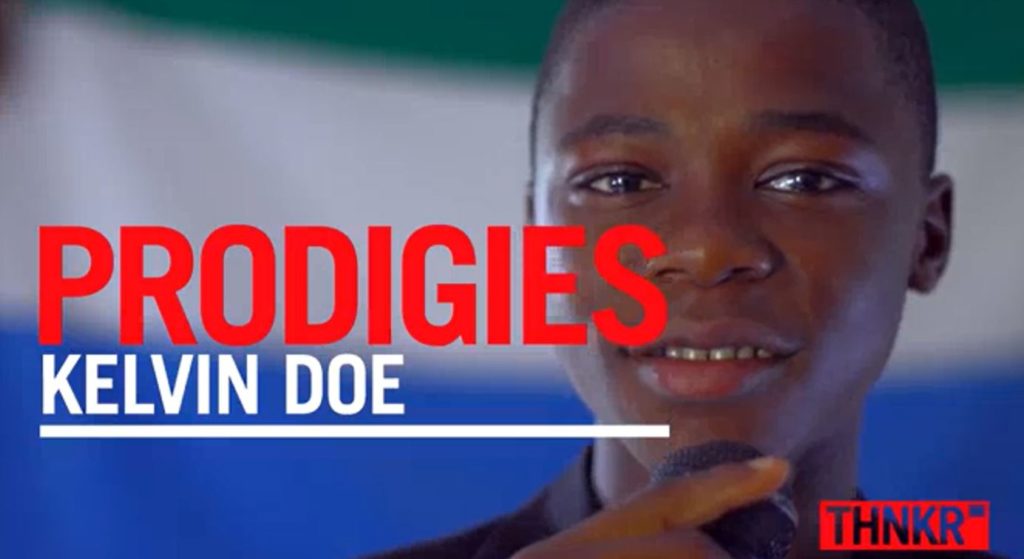 By Neenah Payne
By Neenah Payne
The 2012 video “15-Yr-Old Kelvin Doe Wows M.I.T.” says Kelvin Doe is a 15-year-old engineering whiz from Sierra Leone. Kelvin taught himself to do very intricate things with very few resources. Kelvin created a battery to power homes because the electricity is Sierra Leone is available just once week!
Kelvin also made his own FM radio transmitter. Completely self-taught, he created a radio station where he broadcasts news and plays music under the moniker “DJ Focus.” He scours trash bins for spare parts to build batteries and transmitters. He created a generator to supply current to the radio station to allow people to be informed about issues affecting the community and the nation.
Africans Creating Africa’s Future
David Sengeh is a Ph.D. student from Sierra Leone at M.I.T. Media Lab where researchers have unlimited creative freedom. David explained that Sierra Leone and other African countries have received aid for many years. However, he does not believe that is helpful because the aid does not encourage Africans to design their own future. David said that to facilitate a steep growth in national development, Africa needs a host of young people who can think creatively to solve Africa’s problems. What is needed is a movement to inspire young Africans to create solutions in their areas.
Sengeh runs a Summer Innovation Camp in Sierra Leone where he challenges students to think about the toughest problems in their communities and to come up with solutions. Kelvin’s team applied to build and FM radio station for community empowerment. Now, Kelvin DJs every day and people listen to his radio station religiously! They text the show and he reads the texts. It’s very inspirational.
Sengeh arranged Kelvin’s visit with funding from M.I.T. because he wanted to ensure that young people also have that experience. M.I.T. invited Kelvin to be a guest resident for three weeks. It was his first time leaving home and Sierra Leone. David wrote visa letters, found a place for Kelvin to stay, and has been really invested in making him feel at ease so far from home.
Sengeh mentored Kelvin who was the youngest person ever invited to the “Visiting Practitioner’s Program” at M.I.T. When Kelvin came to the US, Sengeh lined up a busy schedule. First, they went to New York City. They went to Harvard University and spoke with the president. Mike Feldmeier, a researcher at the M.I.T. Media Lab, helped Kelvin improve the transmitters he had made. Mike said that just as Kelvin was getting his world expanded, his own world was expanded by interacting with Kelvin.
In his life-changing journey, Kelvin experienced the US, explored incredible opportunities, contended with homesickness, and mapped out his future. He and Sengeh played ping pong and soccer to relax. David encouraged Kelvin to think of him as his older brother and invited Kelvin to talk to him, to tell him how he was feeling. When Kelvin said he missed Sierra Leone., they went to a restaurant that serves food from Sierra Leone. When Kelvin said he missed his family a lot – especially his mother – David arranged for Kelvin to call his mom and David also spoke with her.
Kelvin said that his goal is to help his family. He said that he will share with his family, friends, and colleagues everything he learned at M.I.T. and in America. Sengeh pointed out that the biggest challenge for Kelvin when he returned to Sierra Leone would be the scarcity of information and materials.
Kelvin said his aim is to promote innovation among young people in Sierra Leone and his next invention will be a windmill to supply electricity. Perhaps he was inspired by William Kamkwamba of Malawi!
David Sengeh Ph.D. at M.I.T. Opposes Aid To Africa
The video Kelvin Doe at TEDxTeen NEW YORK shows that the 2012 THINKR video about Kelvin’s visit to M.I.T. was watched by over four million people! The video received lots of comments, and David Sengeh said the video has had a tremendous impact on the lives of people around the world. In addition, great opportunities have become available to Kelvin.
Kelvin was invited to speak at TEDx TEEN in New York City. It was Kelvin’s first time talking to a large audience face-to-face. However, he was a natural and a hit since he’s a DJ!
Sengeh Wins Prize For New Prosthetics for Amputees
In “EurekaFest 2014 – Lemelson-MIT ‘Cure it!’ Graduate Winner: David Sengeh, Sengeh” explains that he grew up during the decade-long civil war in Sierra Leone. When he won the $15,000 Lemelson-MIT “Cure it!”, he discussed his goal of designing the next-generation of wearable, mechanical interfaces that improve comfort and mobility for amputees. After seeing the ravaging effects of war on the people in his country which made an alarming percentage of the population amputees, David focused his research on finding comfortable and wearable solutions for prosthetic limbs. Sengeh realized that there was a universal need – including in the United States – for comfortable prostheses.
David said that he and his team traveled across Sierra Leone asking young people what problems they saw. The team provided the youth with resources and mentors, and helped them establish a network to learn from each other. David explained that this approach is more effective than foreign financial aid. David and his mom have a design shop that employs tailors and created the dashiki he wore at the talk.
African Solutions To African Problems
Film: The Boy Who Harnessed The Wind! shows that when William Kamkwamba of Malawi was 14 years old, he had to drop out of high school because there was a drought in his village. When his parents’ crop failed, they couldn’t pay the $80/year tuition. Nevertheless, William found a way to study in the school library where he discovered a book about windmills which said that they can create electricity. William knew that with electricity, he could power a water pump and irrigate his family’s land which would allow them to raise two crops a year.
Although the book did not explain how to create a windmill, William figured it out and found the parts he needed in the junkyard. The villagers ridiculed William and called him “crazy.” However, he was able to convince his father to give him his bicycle – his only means of transportation – to build the windmill. With the windmill, William was able not only to irrigate his family’s farm, but installed electric lights in their home. That got the attention of the village. When the librarian visited, she brought journalists who wrote an article about William’s invention.
The article led to an invitation for William to speak at the TED Conference in Tanzania where he met Bryan Mealer with whom he co-authored the book The Boy Who Harnessed The Wind. The book tour took William to the US where he was invited to apply to various universities. He chose Dartmouth where he met his wife.
After graduation, Kamkwamba received a fellowship to IDEO, the global design firm in San Francisco which runs a nonprofit to improve people’s lives in poor communities around the world. The team traveled the world working on projects ranging from sanitation in India to gender-based violence prevention in Kenya. William is now working with WiderNet, a non-profit organization that provides digital education for communities around the world.
The TED Conference helped Kamkwamba start the Moving Windmills Project whose motto is “African Solutions to African Problems.” They have sponsored many enterprises including a soccer team which has had a large impact. One team member was recruited by Mzuzu University, one the best schools in the nation, which he now attends. The latest innovation is the Moving Windmills Innovation Center to inspire low cost solutions and economic progress throughout Malawi.
The Netflix film The Boy Who Harnessed the Wind is based on the book. A premiere held in New York City in February 2019 was attended by Angelina Jolie and her six children. She hosted an interview with Kamkwamba and the director of the film who also played Williams’ father in the movie.
African Economist: Africa Needs Development Not Aid
Zambian economist Dr. Dambisa Moyo’s first book in 2010 Dead Aid: Why Aid Is Not Working and How There Is a Better Way For Africa was a New York Times Best Seller. In The African Threat, Dr. Moyo explains:
Ten years ago, in my book Dead Aid, I highlighted how a narrative backed by international aid policy cemented Africa’s status as the world’s problem child, rather than one destined for greatness.
Newsweek’s Dambisa Moyo’s “Dead Aid” Says Stop Aid to Africa described the huge reception for the launch of Dr. Moyo’s book.
Dr. Moyo discusses her views in these short videos:
- Dambisa Moyo: The Roots of “Dead Aid”
- Dambisa Moyo: Stop Sending Aid to Africa
- Is Aid Killing Africa? Dambisa Moyo talks about Dead Aid on ABC
- Dead Aid: Why Aid is Not Working And How There is a Better Way For Africa
- CNBC: Africans want to be entrepreneurs and don’t want to rely on handouts [must see]
Amazon says:
In the past fifty years, more than $1 trillion in development-related aid has been transferred from rich countries to Africa. Has this assistance improved the lives of Africans? No. In fact, across the continent, the recipients of this aid are not better off as a result of it, but worse—much worse…..Provocatively drawing a sharp contrast between African countries that have rejected the aid route and prospered and others that have become aid-dependent and seen poverty increase,
Moyo illuminates the way in which overreliance on aid has trapped developing nations in a vicious circle of aid dependency, corruption, market distortion, and further poverty, leaving them with nothing but the “need” for more aid….Moyo offers a bold new road map for financing development of the world’s poorest countries that guarantees economic growth and a significant decline in poverty—without reliance on foreign aid or aid-related assistance.
Dr. Moyo’s website is: https://dambisamoyo.com/.
China’s Win-Win Investments Across Africa
The video “China’s Footprint in Africa” shows the deep investment China has been making in multiple sectors in a number of African nations for several years.
China’s Multilateral Approach vs America’s Unilateral Approach
In the video “President Xi calls on China and African countries to be the pioneer to achieve win-win development,” Dr. Francis Onditi, an International Relations and Diplomacy Expert, discusses the impact on Africa of the G20 meeting in Osaka, Japan in 2019. He points out that China is investing $220 billion in Africa now vs. about $40 billion by the US. Dr. Onditi highlights the difference in their strategies. China is a proponent of multilateral win-win solutions while the US engages in unilateral approaches. He says that President Xi wants to build a fair, just, and non-discriminatory market environment.
The video points out:
Chinese President Xi Jinping has also met with South African President Cyril Ramaphosa and Egyptian President Abdel Fattah el-Sisi ahead of the G20 Summit. Xi called on China and African countries to safeguard multilateralism while being the pioneer to achieve win-win development.
The Chinese leader also noted Beijing is willing to work with the United Nations, to promote third-party cooperation in African countries. African leaders spoke highly of China’s contributions in the continent’s development…adding that they will work with China to defend the free trade system in the international community.
China’s Belt & Road Initiative (BRI) Links to Africa
The video Why Is China Investing Billions in Africa? points out that China’s investment in Africa’s infrastructure is part of its trillion-dollar Belt & Road Initiative (BRI) also known as “The New Silk Road” which is linking 65 nations across three continents (Asia, Africa, and Europe). The BRI will create new trade routes in and between African countries. China has promised to align its own goals on the BRI with the goals of the African Union of greater connectivity on the African continent.
Kenyan President Uhuru Kenyatta favorably compared China’s investments in Africa to earlier projects built by colonial powers. He said:
Where the old railway was built by force and violence against the wishes of those whose lands it divided, the new railway is built by consent and partnership both between ourselves and China and between the governments which will prosper and profit by it.
However, the video asks if China’s investment in Africa is really a win-win partnership – or just a new form of colonialism. While the first BRI initiative was in 2013, China began its investment in Africa in 1976. Through its public and private sector, China lent about $132 billion to African nations from 2006 – 2017. Many African nations worry that they won’t be able to repay these debts, but feel the benefits are worth the risk. Only the tiny country of Djibouti is at great risk.
Approximately 35% of African debt is owed to multilateral institutions like the World Bank. About 20% of Africa’s debt is now owed to China – making it the single largest lending nation. However, the interest rates are relatively low and 30% of the investments are devoted to modernizing Africa’s infrastructure. African nations believe that the Chinese investment is a win-win, but only time will tell if that’s true.
Is China The New Model For The Developing World?
Dr. Moyo makes the case that the West can’t afford to rest on its laurels and imagine others will follow. Instead, a different model embodied by China’s call for open-minded political and economic cooperation in the name of transforming the world is increasingly appealing. Dr. Moyo presents a radical blueprint for change to galvanize growth and ensure the survival of democracy in the 21st century.
Dr. Moyo explains in her TED Talk “Is China the new idol for emerging economies?” that for the first time, there is a challenge to the Western model of politics and economics. She warns that the West is now out of step with the aspirations of the developing world – a world being inspired now by China. She points out that while the developed world holds up the ideals of capitalism, democracy, and political rights, people in emerging markets are often focused on preventing famines, access to education, and building infrastructure — roads, highways, airports, schools, hospitals, etc.
Dr. Moyo is also the author of these books:
- How the West Was Lost: Fifty Years of Economic Folly- and the Stark Choices Ahead (2011)
- Winner Take All: China’s Race for Resources and What It Means for the World (2013)
- Edge of Chaos: Why Democracy Is Failing to Deliver Economic Growth-and How to Fix It (2018)
See “TEDx Brussels 2010 – Dambisa Moyo – How the West was Lost” for Dr. Moyo’s analysis of what has gone wrong in the US and Europe — and how to fix it now. The charts below summarize the Western and Chinese models. Dr. Moyo says the West should invest in the developing world with the goal of creating prosperity for all.
Why We Need More Than One Story of Africa
When most people think of Africa, the first thing that comes to mind is poverty, AIDS, Ebola, wars, famine, mass migration, and perhaps preserves with lions, tigers, and elephants. The news about Africa is usually negative. Yet, understanding Africa is central to understanding both European and American history. However, that information has been almost totally ignored in the West for 200 years.
In her humorous TED Talk “The Danger of a Single Story,” now with over six million views, Nigerian author Chimamanda Ngozi Adichie explains how a single story of Africa limits our understanding of a complex reality. Chimamanda is the author of several books that have been translated into 30 languages and have won multiple prizes. She received the McArthur Genius Award in 2008. Chimamanda has been invited to give talks to the graduating classes of Harvard, Wellesley, and many other top universities.
Her website is at: http://www.cerep.ulg.ac.be/adichie/index.html.
In the video “Chimamanda Ngozi Adichie – PEN Pinter Prize 2018,” as she accepted the prize in London, Chimamanda spoke about what it means to be a writer – specifically as a Nigerian woman.
Subscribe to Activist Post for truth, peace, and freedom news. Become an Activist Post Patron for as little as $1 per month at Patreon. Follow us on SoMee, Flote, Minds, Twitter, and Steemit.
Provide, Protect and Profit from what’s coming! Get a free issue of Counter Markets today.


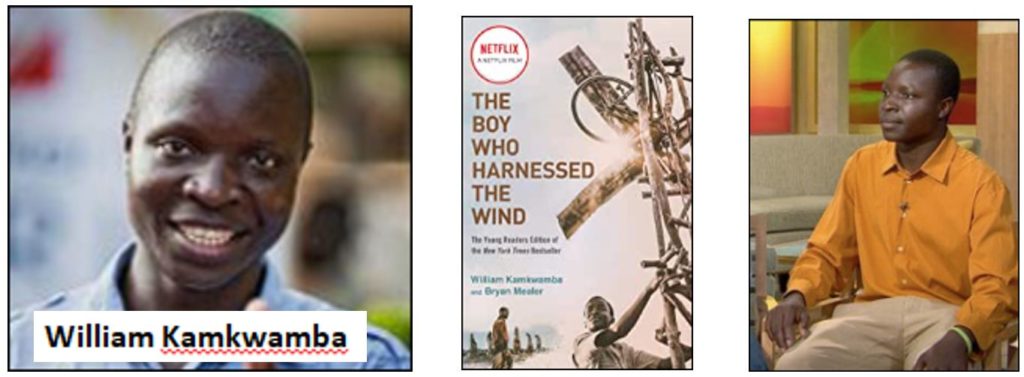
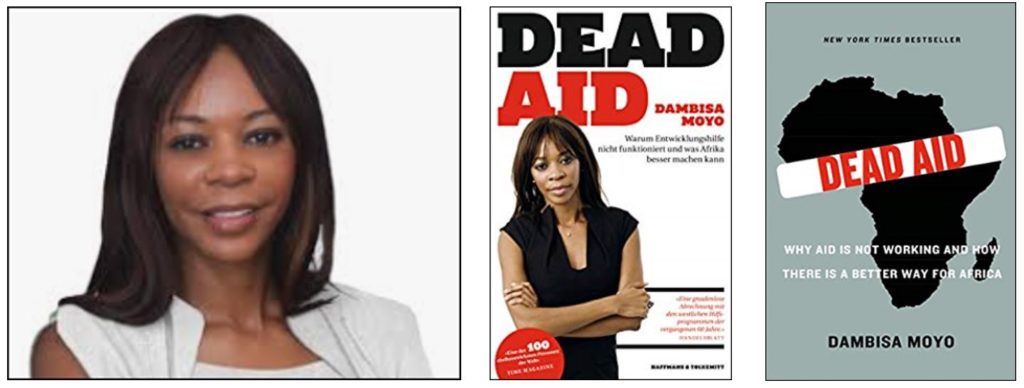

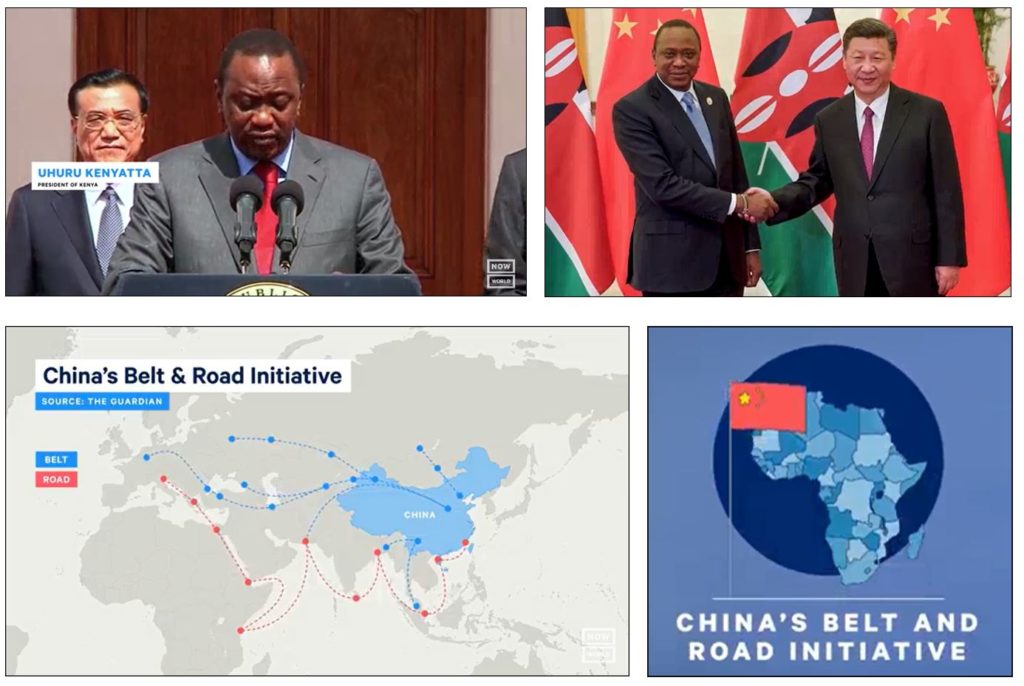
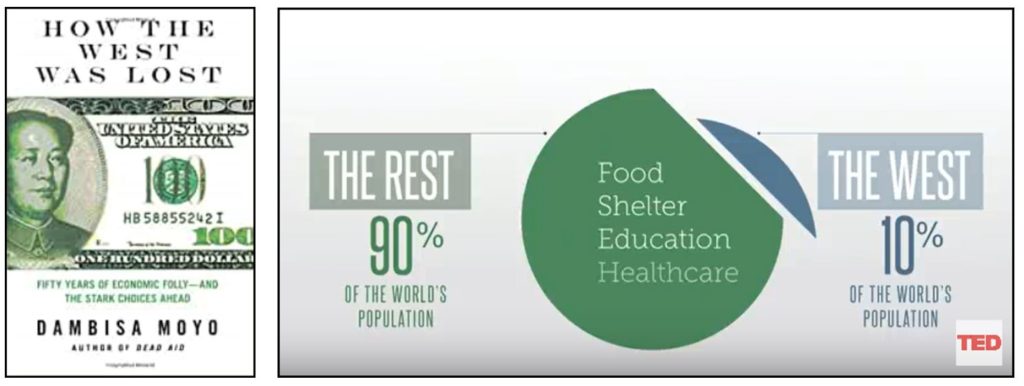

Be the first to comment on "15-Year-Old African Prodigy Wows M.I.T.!"